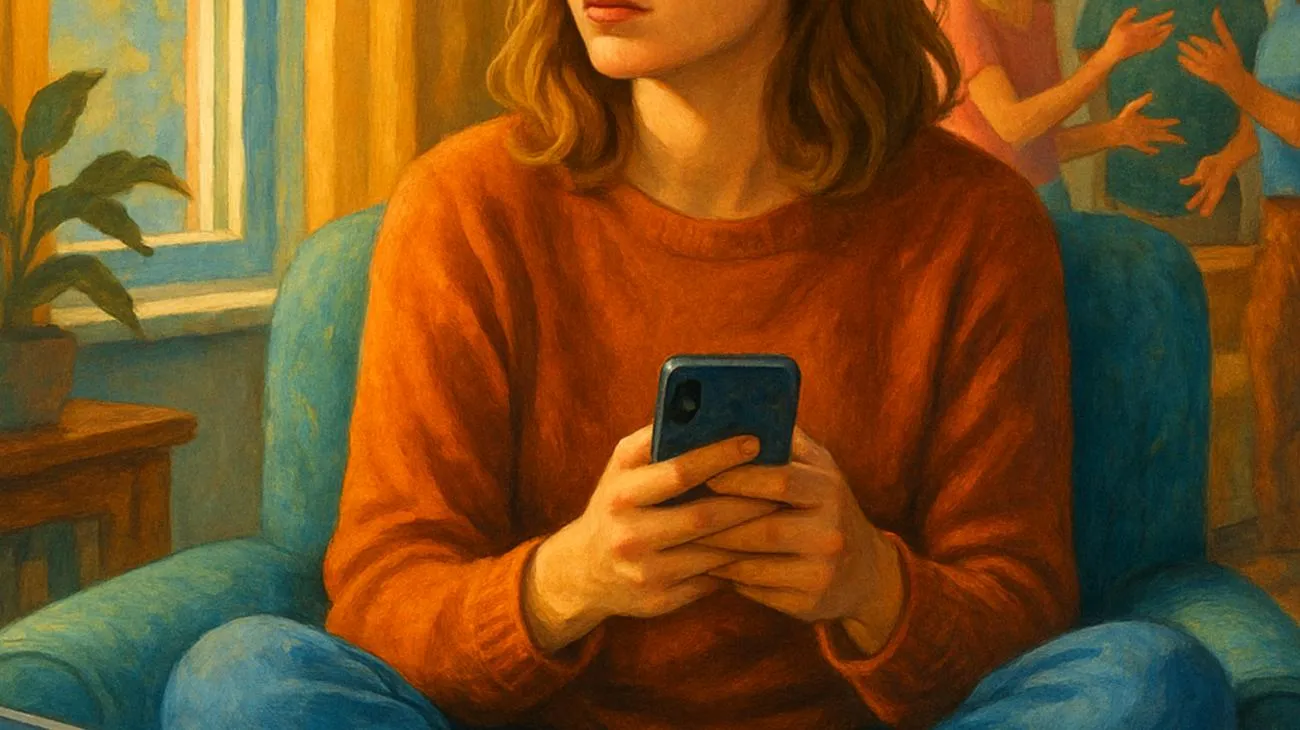You know that friend who posts seventeen Instagram stories before lunch while you’re still debating whether that sunset photo is worth sharing? If you’re an introvert, you’ve probably wondered why social media feels like running a marathon in flip-flops while everyone else seems to be having the time of their lives. Well, grab your favorite quiet corner because psychology has some seriously fascinating answers.
Recent research has cracked the code on why introverts often treat social media like that party invitation they’ll definitely consider but probably won’t attend. Spoiler alert: it’s not because they’re antisocial hermits or tech-phobic dinosaurs. The truth is way more interesting and rooted in how introverted brains are wired to process the world around them.
The Social Media Energy Drain Effect
Here’s something that’ll blow your mind: social media can literally drain introverts’ batteries faster than a phone with a broken charger. Multiple peer-reviewed studies have found that introverts experience social media platforms as emotionally fatiguing and overwhelming. This isn’t just them being dramatic – it’s a legitimate psychological response known as the Social Media Energy Vampire Effect.
Think about it this way: if you’re an introvert, your brain finds energy in quiet reflection and deep, meaningful conversations. Social media, on the other hand, is like being trapped in a crowded mall food court where everyone’s shouting their thoughts at maximum volume and expecting you to shout back immediately. The World Health Organization found that more than one in ten adolescents struggle to control their social media use, often resulting in emotional strain and negative consequences.
The constant ping of notifications, the pressure to respond within nanoseconds, and the need to curate your digital persona create what researchers call persistent stimulation. For introverts who need downtime to recharge and process their experiences, this digital noise is like trying to meditate next to a construction site.
The Quality vs Quantity Social Battlefield
While extroverts are out there collecting Facebook friends like Pokemon cards and thriving on dozens of daily interactions, introverts are playing an entirely different game. Research reveals that introverts, especially those who genuinely enjoy solitude, use social media significantly less and actively seek alone time for their psychological well-being.
This isn’t antisocial behavior – it’s actually brilliant life management. Introverts are hardwired for depth over breadth in their relationships. When they engage on social platforms, they often feel like they’re being served fast food when they’re craving a home-cooked meal. A quick “like” or generic comment doesn’t satisfy their hunger for authentic connection.
Picture going to a restaurant where every conversation is limited to thirty seconds and everyone speaks in hashtags. That’s essentially what social media feels like to someone who thrives on deep, meaningful exchanges.
The Authenticity Minefield
Introverts have a superpower that sometimes feels like a curse in the digital age: they’re naturally wired for internal processing. They like to think before they speak, marinate on experiences before sharing them, and value genuine authenticity over performance art.
Social media platforms, however, often reward the exact opposite behaviors. The most successful posts are usually spontaneous, highly curated, or designed to generate maximum engagement rather than genuine human connection. It’s like being asked to perform Shakespeare when you prefer intimate poetry readings.
Research consistently shows that introverts are more vulnerable to the negative emotional effects of performative content. When everyone else seems to be living their highlight reel online, introverts – who tend to be more reflective and self-analytical – can end up feeling like they’re watching life through a funhouse mirror.
Busting the Digital Introvert Myth
You’ve probably heard the theory floating around that social media should be perfect for introverts because it allows for slower-paced, less intense social interaction. It sounds logical, right? Well, the research basically laughed at this theory and showed it the door.
Multiple studies reveal that introverts with higher psychological well-being actually use social media less, not more. The idea that digital platforms provide an easier social outlet for introverts turns out to be about as accurate as saying cats love water because it’s wet.
The problem isn’t necessarily the technology itself, but how most social media platforms are designed. They’re built around extroverted values: constant engagement, massive networks, public sharing, and immediate responses. It’s like designing a library with strobe lights and expecting people to enjoy reading.
The Sacred Art of Digital Solitude
One of the most fascinating discoveries in recent research is how introverts use solitude as a psychological resource. Unlike loneliness, which feels like being hungry with no food around, solitude is like choosing to enjoy a perfectly prepared meal alone. It’s intentional, nourishing, and absolutely essential for introvert mental health.
These behaviors are often linked to what psychologists call energy vampires – situations or interactions that systematically drain a person’s psychological resources. Social media, with its relentless connectivity and social demands, can interfere with the crucial recharge time introverts need to feel balanced and energized.
It’s like trying to sleep while someone keeps texting you “Are you awake?” The interruption isn’t necessarily malicious, but it prevents you from getting the rest you desperately need.
Introversion vs Social Anxiety: The Great Mix-Up
Here’s a crucial distinction that gets tangled up more often than headphones in a pocket: introversion is absolutely not the same thing as social anxiety. While some introverts might also experience social anxiety, many simply avoid social media because of energy management and their preference for meaningful connection, not because they’re scared.
Social anxiety is like being afraid the audience will boo you off stage. Introversion is like preferring intimate coffee shop performances over stadium concerts. Both are valid experiences, but they come from completely different places psychologically.
An introvert might avoid posting on Instagram not because they’re worried about judgment, but because the entire process feels as appealing as voluntary dental surgery. This distinction is crucial because it reframes introvert behavior from something that needs fixing to a legitimate lifestyle preference that deserves respect.
The Adaptive Genius of Digital Boundaries
Perhaps the most important revelation from current research is that introverted social media avoidance isn’t a character flaw or social dysfunction – it’s often an adaptive response to digital overstimulation. In a world that increasingly demands constant connectivity and public engagement, choosing to step back is like being the one person who remembers to put on sunglasses during a solar eclipse.
Introverts who limit their social media use often report better mental health, more satisfying relationships, and greater life satisfaction. They’re not missing out on the party – they’re throwing a better one that actually matches their needs and values.
Mastering the Digital Balance Game
Understanding these psychological patterns doesn’t mean introverts should delete all their apps and retreat to a cave with nothing but books and houseplants (though that does sound pretty appealing). Some introverts find success by approaching social media with strategic boundaries:
- Choosing platforms that allow for deeper interactions rather than surface-level engagement
- Setting strict boundaries around usage time and notification settings
- Focusing more on consuming quality content than creating constant posts
- Using social media for specific purposes rather than mindless scrolling
- Prioritizing meaningful connections over impressive follower counts
The revolutionary insight here is that there’s no universal approach to social media that works for everyone. What energizes an extrovert might drain an introvert faster than a phone left on maximum brightness, and that’s not just normal – it’s scientifically validated.
The science is clear: introverts have legitimate, research-backed reasons for their more thoughtful approach to digital social engagement. They’re not broken extroverts who need fixing – they’re operating according to a different but equally valid psychological blueprint that prioritizes depth, authenticity, and intentional connection over digital noise and superficial engagement. Sometimes the most radical thing an introvert can do in our hyperconnected world is to simply close the laptop, turn off the notifications, and enjoy some gloriously peaceful solitude.
Table of Contents

